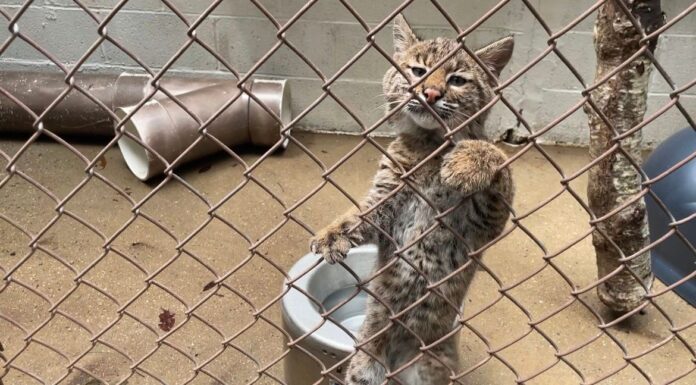ASHEVILLE, N.C. — The Western North Carolina Nature Center is seeing a baby boom right now, including a six-pound bobcat named Tufts.
“At this age, because of how tiny he is right now, he’s only about a third of how big he’s going to be,” said Chris Gentile, with the Nature Center. They took him in from a rehab center.
“You can see just how friendly he is around people. He has no fear of people, so this is a real reason why he could never be released into the wild,” Gentile said.
He is one of the several baby animals at the nature center right now. Without the support here, some of these animals wouldn’t otherwise have a chance of surviving.
“Unfortunately, animals that can’t be re-released into the wild that might be injured for some reason, if they can’t find homes for them, they could be euthanized,” Gentile said.
Gentile has nearly three decades of experience in animal care, but he says being here, has been a great fit for him.
“We focus really strongly on education, and I feel like that’s the real strength of my background at least,” Gentile said.
The Nature Center has a variety of animals from the amphibians like the hellbender salamander and snapping turtles to mammals like otters, the American black bear, and red pandas.
But what’s specific to this nature center is, the animals here are directly in the habitat they would naturally live in.
“There’s no other habitat like the southern Appalachians anywhere in the world so the ability for us to represent this to people is what we can do best,” Gentile said.
They also take care of endangered species, like the American red wolf.
“Now there’s only about 200 red wolves in zoos like ours and only about 20 to 30 that are actually in the wild,” Gentile said.
Gentile says their focus isn’t solely on caring for animals at the nature center, but to work with rehab center, conservationists, and the government to help animals in general.
“We’re taking care of individual specimens here, overall, our goal is to manage the species because that’s where the true health of the future comes in,” Gentile said.



